Vienna talks: US asks for direct talks with Iran, backtracks on ‘artificial deadline’
A senior US State Department official has asked for direct negotiations with Iran over the revival of the 2015 agreement, saying the US position that there is not much time to reach a deal is neither a threat toward Iran nor an artificial deadline or ultimatum.
At a special briefing on Monday, the unnamed US official said direct talks between Tehran and Washington through the Vienna process would be the optimal way to reach an agreement to restore the deal, officially called the Joint Comprehensive Plan of Action (JCPOA).
“If our goal is to reach an understanding quickly... the optimal way to do that, in any negotiation, is for the parties that have the most at stake to meet directly,” the official said, referring to the United States and Iran.
“If Iran doesn’t want to talk to us, that is, of course, their decision,” the senior US official said, adding, however, that it would be “deeply unfortunate” if the two sides did not have direct talks, “given how little time is left, given how critical... the decisions that need to be made are.”
Since the Vienna talks began in April last, Iran has declined direct negotiations with the US over Washington's withdrawal from the JCPOA, its illegal sanctions against the country, and its refusal to remove the sanctions despite expressing willingness to rejoin the deal under a new administration.
Last week, Iran’s top security official Ali Shamkhani once again ruled out direct talks with Washington, but suggested that direct dialog could become possible only if a “good agreement” is within reach in Vienna.
Referring to the US pullout from the JCPOA under former president Donald Trump, the senior US official said a “full return” to the deal “would get us out of the situation that we inherited from the prior administration’s catastrophic error of withdrawing from the JCPOA.”
The American official reiterated the US position that the talks cannot go on forever due to Iran’s nuclear advances.
“It’s not a threat. It’s not an artificial deadline. It’s just a requirement that we’ve conveyed indirectly to Iran and to all our P5+1 partners for some time, which is that given the pace of Iran’s advances, its nuclear advances, we only have a handful of weeks left to get a deal, after which point it will unfortunately be no longer possible to return to the JCPOA,” he stated.
“So again, not an artificial deadline, not an ultimatum, but just a statement of fact that the Iranians have been aware of now for some time that we are reaching the final moment, after which we will no longer be in a position to come back to the JCPOA because it will no longer hold the value that we negotiated for. So that’s one reason why we say that this – we’re entering into the final – the endgame.”
Iran has repeatedly rejected the notion of fabricated deadlines for the Vienna negotiations, emphasizing that it is committed to reaching a good agreement in the shortest possible time.
On Monday, the country’s Foreign Ministry spokesman, Saeed Khatibzadeh, once again rejected what he called “artificial deadlines” for the Vienna talks, saying a good and sustainable agreement can be reached within a day if the other sides to the negotiations respond to Iran’s demands.
Speaking at a press conference, Khatibzadeh said there has been “very remarkable progress” in the last three weeks, but criticized certain “inactions” and “indecisions” on the other side.
“We suggest that the other parties return from their capitals with the necessary decisions so that we can quickly summarize what we have prepared in the drafts quickly,” he added.
Trump unilaterally left the JCPOA in May 2018 and re-imposed the anti-Iran sanctions that the deal had lifted. He also placed additional sanctions on Iran under other pretexts not related to the nuclear case as part of his “maximum pressure” campaign.
Following a year of strategic patience, Iran decided to let go of some of the restrictions on its nuclear energy program, resorting to its legal rights under the JCPOA, which grants a party the right to suspend its contractual commitments in case of a non-performance by the other side.
The US administration of President Joe Biden had voiced a willingness to compensate for Trump’s mistake and rejoin the deal, but it has retained the sanctions as leverage.
Envoys from Iran and the P4+1 group of countries — Britain, France, Russia, and China plus Germany — have been holding negotiations in the Austrian capital for roughly 10 months in a bid to resurrect the JCPOA.
The eighth round of the talks has been put on pause as diplomats returned to their capitals for consultations.
VIDEO | Press TV's news headlines
VIDEO | Another Gaza medic dies in Israeli custody
VIDEO | Hezbollah says prepared to defend Lebanon, does not seek war
VIDEO | Celebrations held across China to welcome New Year
VIDEO | Mexico’s historic battle reenactment draws over 200,000 visitors
'ICE-style enforcement': nearly 70 groups slam EU migration policy
Araghchi holds key meetings in Geneva ahead of indirect Talks with US
Iran to hold 40th day commemoration for martyrs of terrorist riots


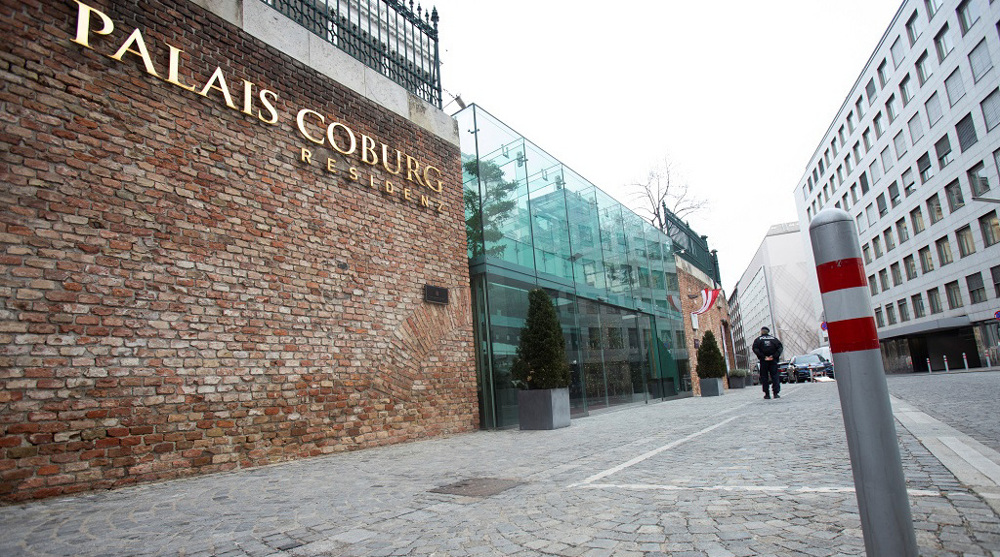
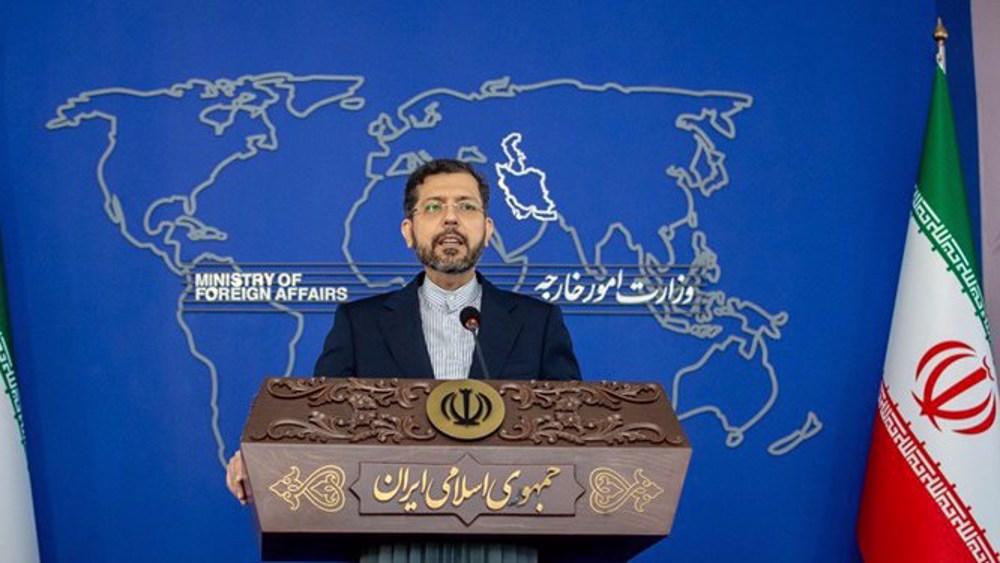
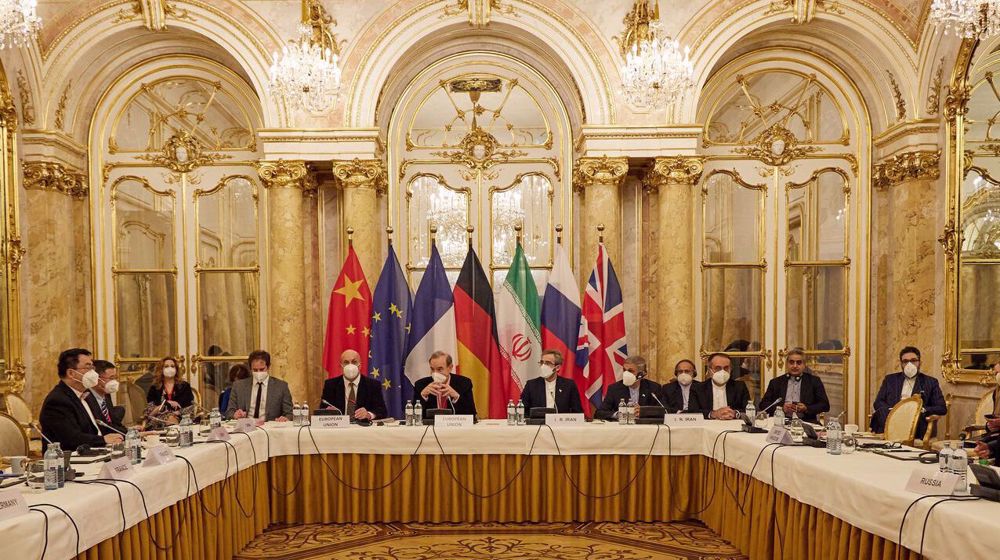
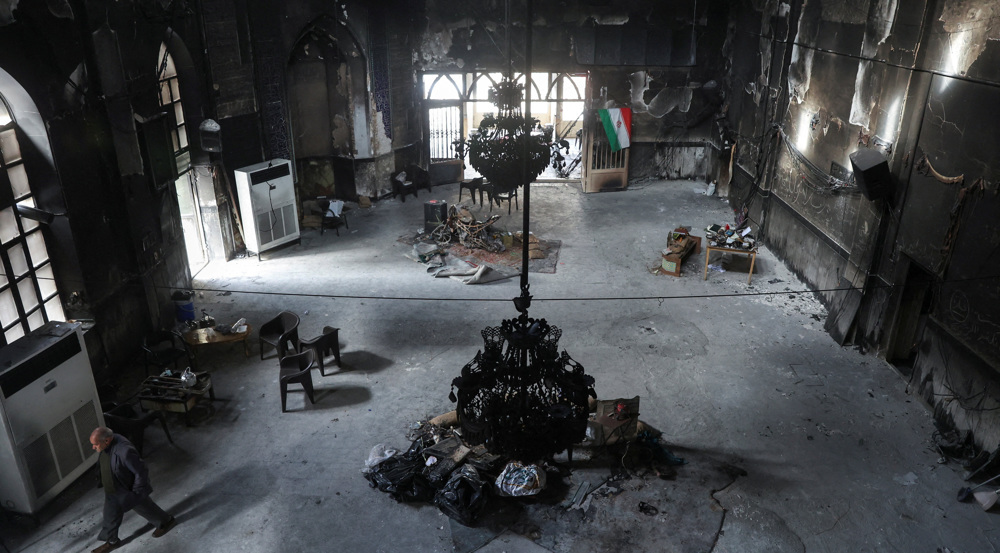
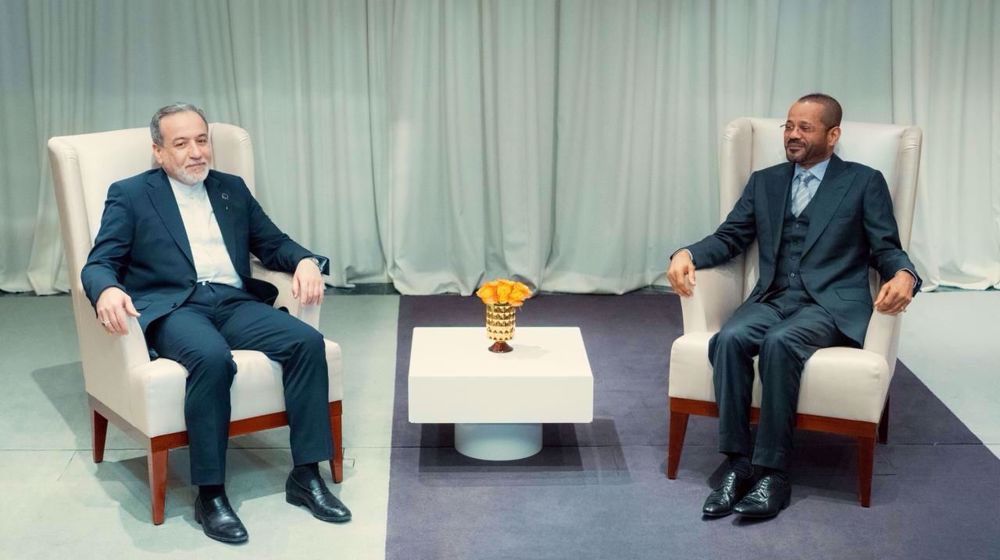
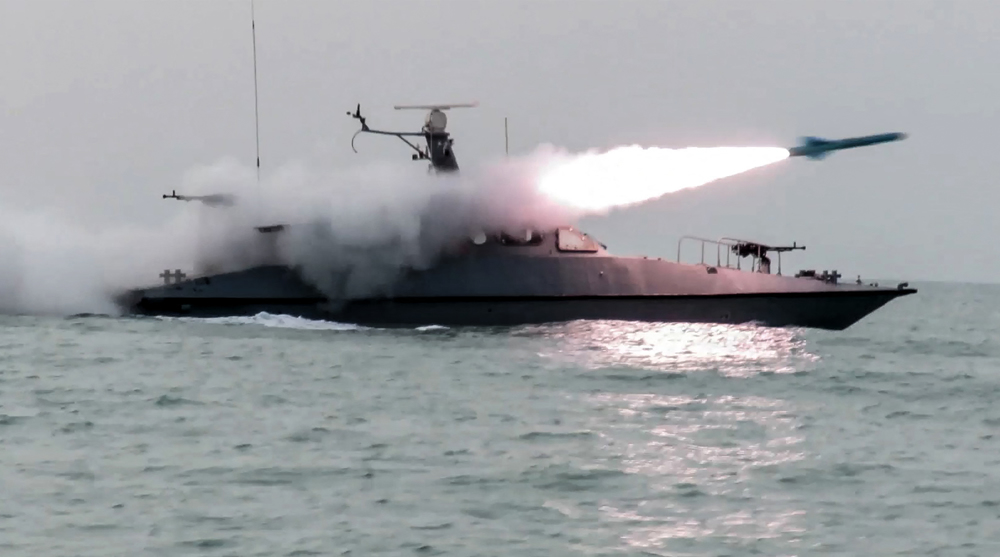



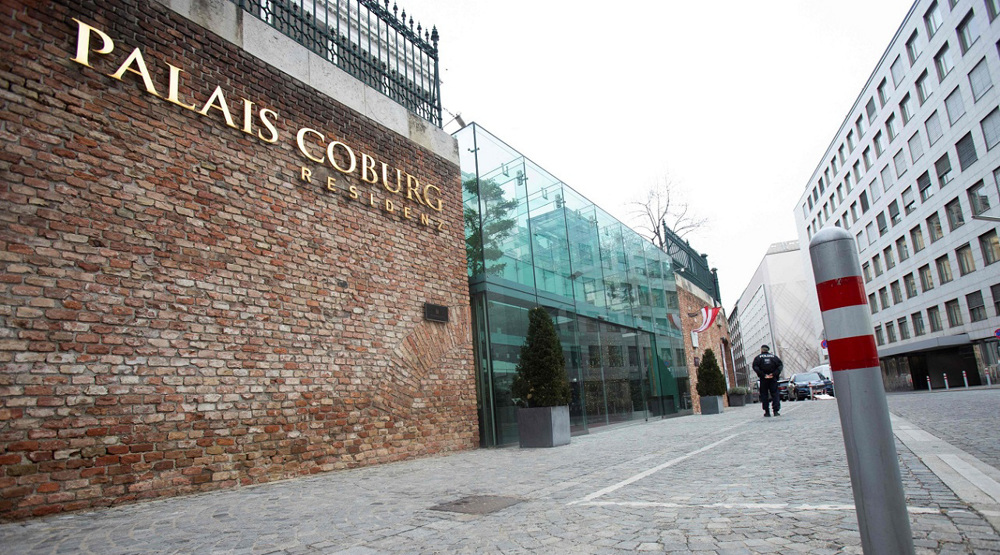
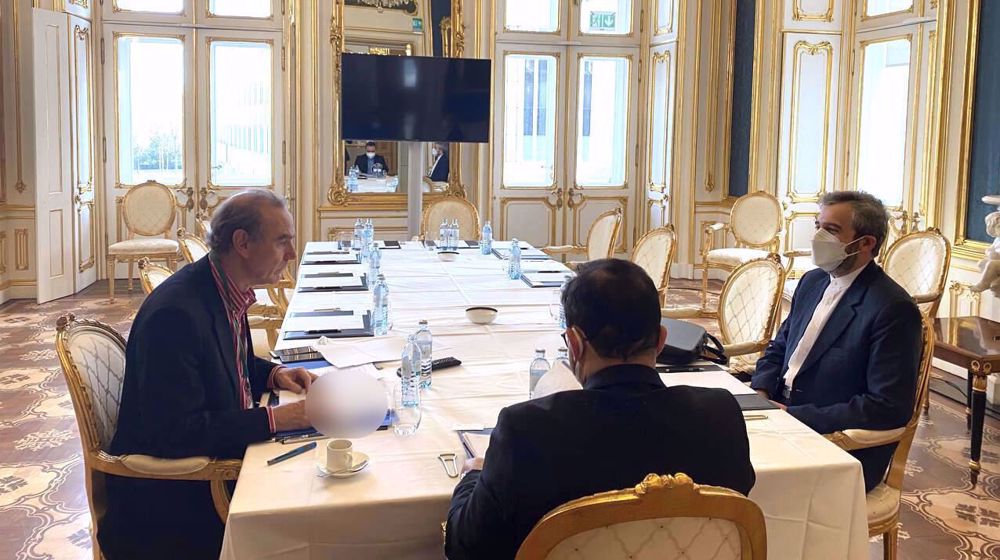
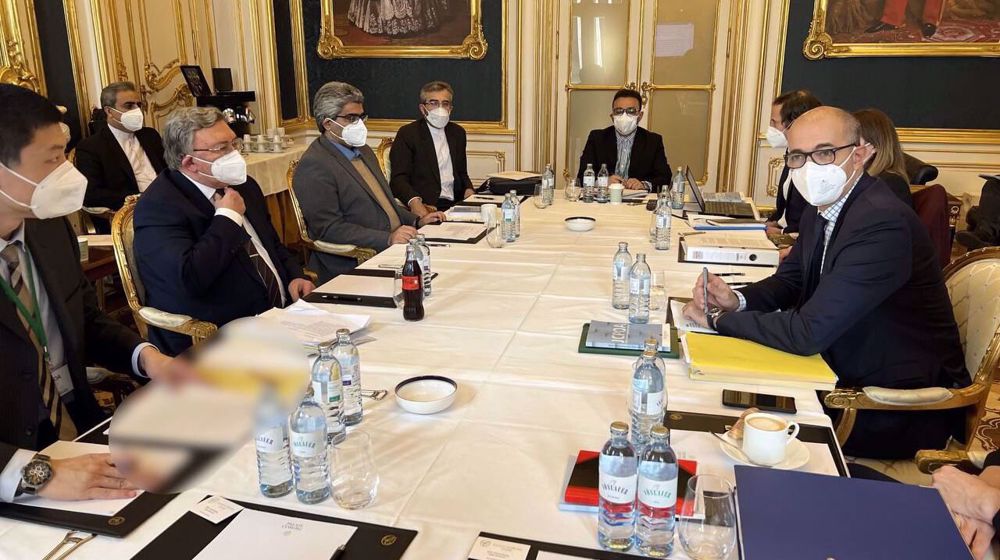

 This makes it easy to access the Press TV website
This makes it easy to access the Press TV website